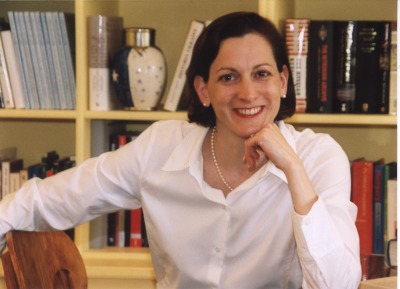Prior to this assignment I did not know who or what was a Public Intellectual (PI). After researching
"What is a Public Intellectual?" on various sites I reached one conclusion, PIs should bridge a gap between the elite academic/intellectual class and the normal educated population. When we attend college we usually choose one concentration to focus on, we simply cannot be experts in every field. What is significant about PIs is that they are able to explain and transmit complex topics using language that is accessible to the average person.
 Anne Applebaum
Anne Applebaum is a Pulitzer prize-winning author, Director of Political Studies at the Legatum Institute in London, as well as runs projects on political and economic transition. But, none of these descriptions were the main reason why I chose Anne Applebaum as my Public Intellectual. In addition to being all the descriptions mentioned above Anne Applebaum is a journalist for the Washington Post. She also has her own
website where she discusses topics ranging from foreign policy to domestic issues that are affecting Americans now. From the long lists of PIs I researched she appeared to be one of the most accessible to the public.
In one of her more recent publications in The Washington Post,
"What Libya has inherited from Moammar Gadaffi", she discusses the lasting effects of Gadaffi's regime in Lybia. Although she is writing non-fiction she is able to pull the reader in with metaphors, with her use of rhetoric:
"Young men in fatigues hang around outside the offices of the Transitional National Council, carrying rifles and flashing V (for victory) signs at visitors. Inside, older men in leather jackets sit on sofas drinking tea, while temporary officials cope with clashing appointments and race up and down the hallways. It’s just how one imagines the Smolny Institute, Lenin’s St. Petersburg headquarters, in 1917: amateur, enthusiastic, disorganized, rumor-filled and slightly paranoid, all at once."
The reader, in this case myself, feels the need to read on as if it were a novel, wanting to now what happens next.
In her website she discusses other topics that often have nothing to do with foreign policy, rather topics such as the social location, the reality that many Americans are living today. In one of her posts she questions,
Can America Survive Without Its Backbone?. In this writing she begins with a personal story/experience belonging to one of her close friends. She focuses on the struggles of the middle class to remain "middle class". Applebaum hones in on the disparities that exist from one city to the next in our own country. She makes the point that in the US the city you are born in, the city you grow up in will definitely serve as an obstacle or an advantage when it becomes time to plan your future.
I look forward to reading more of Anne Applebaum's work. So far I have the impression that she is a well-rounded writer that is able to reach her audience very effectively.


